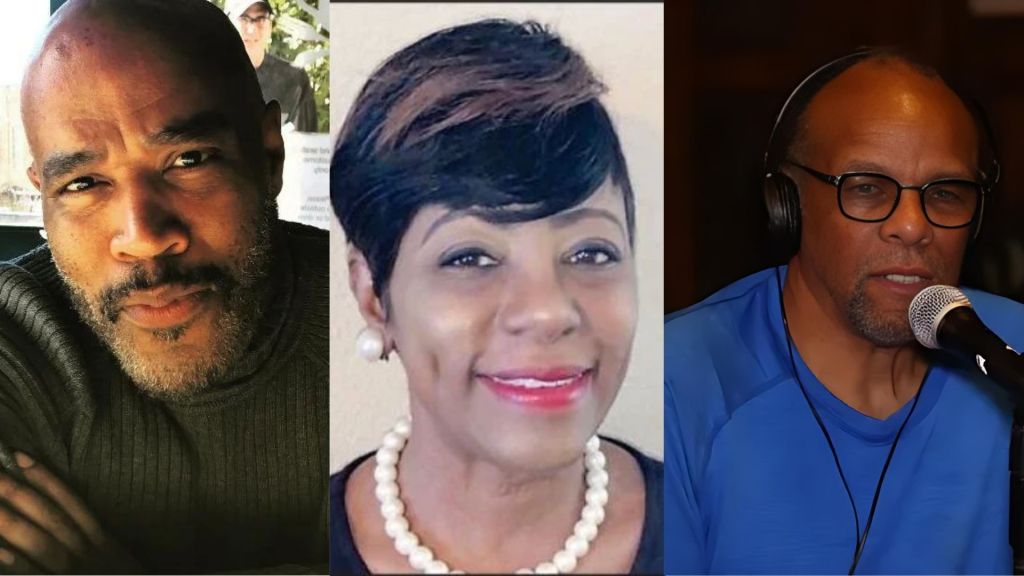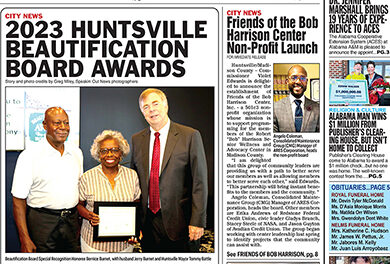By Aria Brent
AFRO Staff Writer
abrent@afro.com
Throughout its more than 80 years of existence, the National Newspaper Publishers Association (NNPA) has served as a pillar within the Black Press, allowing for generations of Black journalists to get their start. Many of the organizations within the NNPA are small but mighty publications that have been around long enough to watch journalism students turn into media moguls.

NNPA publications are known for being an environment that offers a warm introduction into the world of journalism, while also providing live opportunities to cover important issues in the Black community.
“I graduated from Florida A&M University and my first job out of college was at the Daytona Times, where I’m the publisher,” said Jenise Griffin, publisher of the Daytona Times and the Florida Courier. “I worked there for four years and I was able to do a lot more there than I would be able to do at a mainstream paper.”
Griffin previously worked at the Daytona Times early on in her career and she explained how much she values the experiences she had during her first few years as a journalist. Sharing that working for a Black publication helped hone her skills and prepare her for greater opportunities outside of the Daytona Times.
“I was able to get some really great reporting experience. I was able to move up and I learned about editing. I really honed my skills at the Daytona Times,” Griffin recalled. “When I left the paper I was the managing editor. I left there and went to the Orlando Sentinel and I became one of the first Black copy editors there.”
William Rhoden echoed Griffin’s sentiments, discussing how vital Black Press assignments can be for budding Black journalists.
“My first job was with the AFRO American Newspapers. Frances Murphy taught this journalism course at Morgan State where I was a student and I took her course,” said Rhoden, former AFRO staff and sports writer. “She told me that if I didn’t get drafted by an NFL team and if I decided not to go to graduate school, then I was to bring my butt to the AFRO American Newspaper and start working.”
“I got my Bachelor’s degree in journalism at the AFRO,” he says, fondly.
Following his time at the AFRO, Rhoden went on to work for a series of other well known publications like EBONY magazine and The New York Times. He credits his experience at the nearly 132 year old publication for teaching him the basics of journalism and establishing the foreground for his career.
“Although I left the Black Press after EBONY, I’ve always had the Black Press in my heart,” Rhoden stated. “I always represented the Black Press. Whether that be writing about Black people, issues that affect Black people or advocating for Black people through athletics.”
Like Rhoden, Griffin noted that service within the ranks of Black Press is indispensable.
“If you talk to a lot of journalists who’ve gone on to great positions in this industry, you’ll see that a lot of them worked at the Black Press,” shared Griffin. “That was invaluable to them. I think that we really should talk about that more.”
Former AFRO editor, Sean Yoes explained how working for an NNPA publication provided him opportunities he wouldn’t have received at a White publication. He explained how these special opportunities are necessary to help amplify the voices of young, Black journalists.
“They gave me a chance. I was a young kid and I got thrown right into the fire,” Yoes recalled. “My first week at the AFRO I was on the front page. They took a chance with me because I didn’t know what I was doing. They guided me, they believed in me and I pulled it off–thank God.”
Yoes first began working for the AFRO in 1989 and throughout the years he returned to the publication taking on a series of roles. In between his time at the AFRO, he pursued other forms of media like acting, filmmaking and radio hosting. He noted that having a chance taken on him instilled a confidence in him that he’s carried with throughout his career.
“They gave me a platform when I was just a young kid. It was a trip to see my name in the newspaper, on the byline at age 23,” said Yoes. “I’ll always be thankful for that and in giving me that chance, it instilled confidence in me. That was the greatest gift they gave me– a chance.”
.
The post Black journalists recall humble beginnings at NNPA publications appeared first on AFRO American Newspapers.











